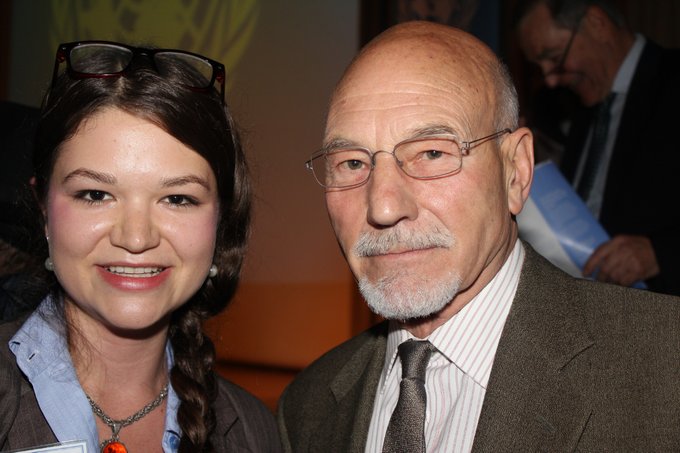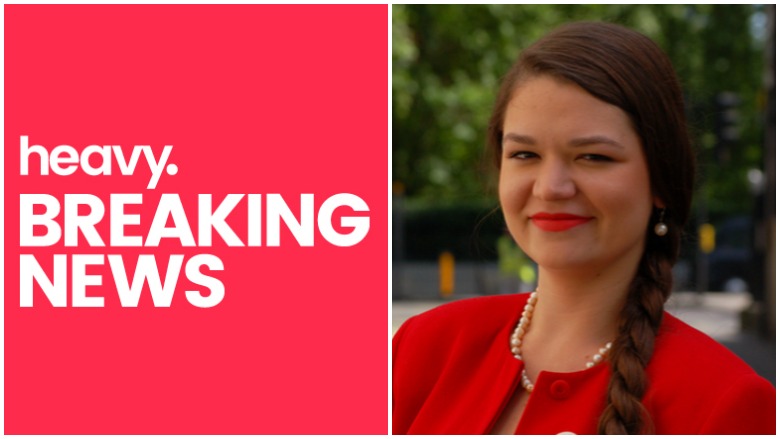
Cambridge Analytica whistleblower Brittany Kaiser confirmed to The Guardian that she’s a cooperating witness in Special Counsel Robert S Mueller III’s investigation into the Russian attack on the 2016 US presidential election and alleged Trump campaign collusion with Russia.
Kaiser worked on Brexit. She worked for Cambridge Analytica which is alleged to have helped see Trump elected. She met with Julian Assange. And now she’s cooperating with Mueller.
Born in Houston but raised in the wealthy lakefront Lincoln Park neighborhood on Chicago’s North Side, she attended the private Chicago Jewish Day School and was enrolled at the “prestigious” Phillips Academy Andover (Massachusetts) named the best high school in the U.S. and described as an Ivy League feeder school. While at Andover, she volunteered for former Vermont governor Howard Dean’s abandoned 2004 presidential bid.
After graduation, she told Elle, instead of the oft-traveled path into one of the nation’s most prestigious colleges or universities, she went to the University of Edinburgh. She’d later study at the City University of Hong Kong, the University of London’s Birkbeck College and earn certificates of study at the World Bank Institute and US Institute of Peace. She’d earn her Doctor of Philosophy from Middlesex University.
In 2007, when she was 20 and in university in Scotland, Kaiser took time off to work with the digital team of then-Sen. Barack Obama’s presidential campaign.
Eventually, Kaiser would segue however into a career as a human rights activist while soliciting, and getting, gigs with business concerns and political parties in Eastern Europe and Africa.
By 2014, she was in league with Strategic Communication Laboratories Group, the behavioral research, and strategic communications firm, and Cambridge Analytica, then headed by the now-disgraced Alexander Nix.
A few years later, Kaiser would testify against both before Parliament.
She told Elle in June of 2018 that she “…felt like I’d spent many years making excuses for my executives and making excuses for political candidates I was representing and their views, when some of those political views, in my mind, were very distasteful.”
Now though, her politics are more opaque than ever perhaps as a Democrat who voted for Bernie Sanders, she told the magazine, her upcoming speaking engagement at the Conservative Political Action Conference might have some scratching their heads. A subject of a new documentary that just premiered at Sundance, her profile is sky-scraper high. And she appears in no way chagrin in admitting she’s working with Mueller.
Kaiser’s story is a conundrum wrapped in a cliffhanger.
Here’s what you need to know:
1. Kaiser is Cooperating With Mueller & Congress on the Russia Investigation
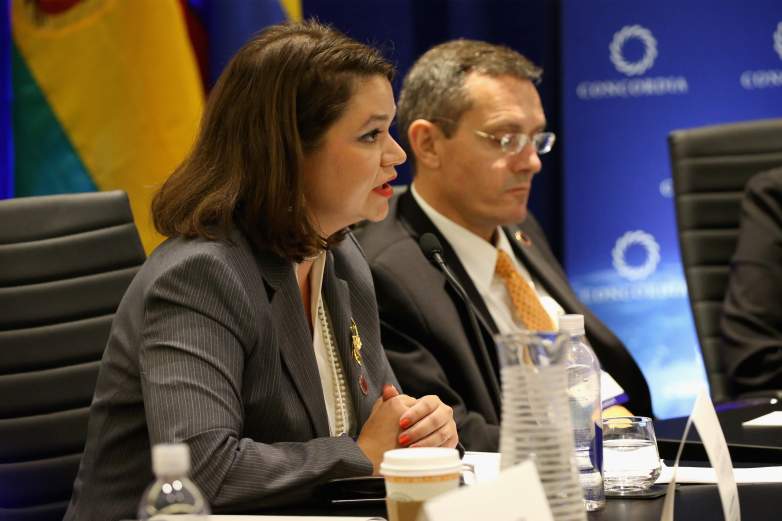
Director of Programme Development for the SCL Group Brittany Kaiser speaks at the 2016 Concordia Summit – Day 1 at Grand Hyatt New York on September 19, 2016 in New York City.
Brittany Kaiser, 31, has been subpoenaed by the US investigation into possible collusion between the Trump campaign and the Russian government, as was reported by The Guardian.
A spokesman for Kaiser confirmed to the paper that she had been subpoenaed by special counsel Robert Mueller, and was cooperating fully with his investigation.
It was reported the spokesperson added that she was “assisting other US congressional and legal investigations into the company’s activities and had voluntarily turned over documents and data.”
Cambridge Analytica whistleblower number one, Christopher Wylie. As Heavy reported in the summer of 2018, Wylie came forward and spoke to the same reporter who broke the story about Kaiser: Carole Cadwalladr.
Wylie was in the epicenter of the psyops web behemoth created by Steve Bannon and backed by Robert and Rebekah Mercer. Wylie was both brainchild and whistle-blower of Cambridge Analytica and its connection to the pilfered data of some 90 million Facebook users. The Guardian’s report about the “…gay Canadian vegan who somehow ended up creating ‘Steve Bannon’s psychological warfare mindf*ck tool,'” was followed by a Wylie tweet:
At the time, Rep. Adam Schiff (D-CA), then ranking member of the House Permanent Select Committee on Intelligence, sent a letter to Wylie asking him to testify as part of the committee Democrats’ “ongoing investigation into Russian interference in the 2016 election.” A release said Schiff and the committee’s minority members are looking for Wylie to testify “about the reported misappropriation of private data, as well as information determine where the date it was stored, how it was used, and with a third parties accessed and exploited the information, including in Russia.”
Russia, Facebook, Pres. Donald Trump, the Mercers, and Bannon all appear as threads running through Cambridge Analytica conceived by Wylie, 28, who was just 24 at the time an idea went from an objective theory to a concrete practice that infiltrated the lives of millions and likely swayed the 2016 US election and the incalculably significant Brexit vote.
Wylie told The Guardian, the Mercers and Bannon seized upon the research of Cambridge University professors led by Aleksandr Kogan, and Wylie’s idea to amass information “to bring big data and social media to an established military methodology – ‘information operations’ – then turn it on the US electorate.”
Wylie was a revelation, but many are saying that the news that Kaiser is cooperating is bigger: her work with SPL and Cambridge Analytica had her working on Brexit and Trump, and meeting with Julian Assange.
2. Kaiser, a Democrat She Said, Worked For the Obama Campaign & Other Prominent Dems & Voted For Bernie Sanders But is a Headline Speaker at CPAC 2019
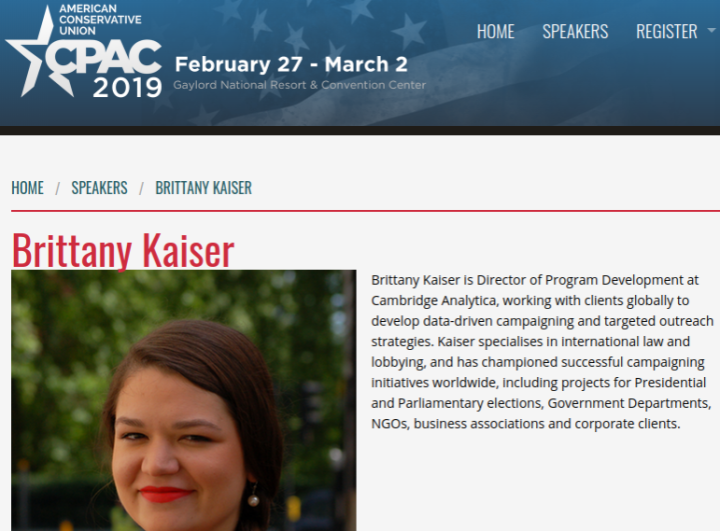
Brittany Kaiser CPAC
Kaiser’s first work experience, at least as she describes on her LinkedIn, was working on the campaign of then US Sen. Barack Obama in 2007. And in testimony at Parliament, she said, “During my academic studies, I volunteered on the presidential campaign of Howard Dean and the senatorial campaign of Barack Obama, before becoming part of the small new media team on Obama’s presidential campaign in 2007/8.”
An activist and Democrat, she was working for Democrats Abroad when she first met a man who would offer her a job working for firms dedicated to, among other controversial campaigns, ensuring Britain left the European Union and helping to see Donald Trump elected US president.
Now, it appears that Kaiser, who was reported to have attended the Trump 2016 victory party, is listed as a speaker at CPAC, slated for Feb. 27 to March 2.
The CPAC description reads:
“Brittany Kaiser is Director of Program Development at Cambridge Analytica, working with clients globally to develop data-driven campaigning and targeted outreach strategies. Kaiser specializes in international law and lobbying and has championed successful campaigning initiatives worldwide, including projects for Presidential and Parliamentary elections, Government Departments, NGOs, business associations and corporate clients.”
3. Kaiser Met Alexander Nix & Soon Was Working For SCL & Cambridge Analytica & Was an Architect of the Leave.EU Campaign. She’d Later Testify Before Parliament
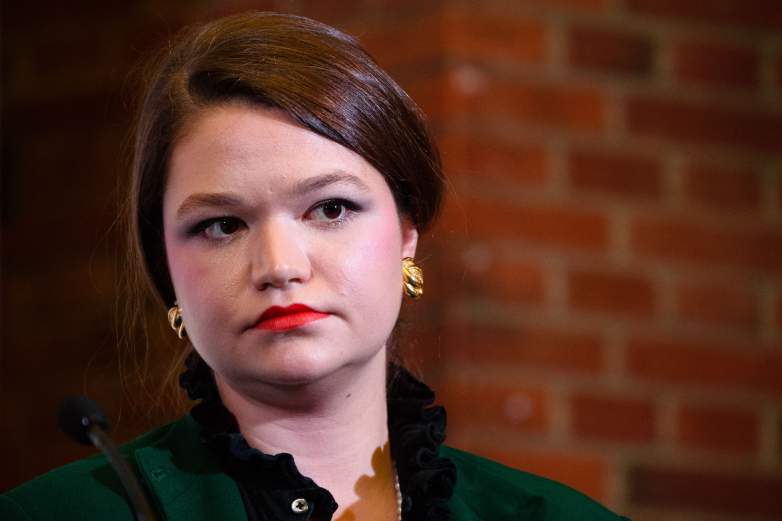
Brittany Kaiser, Director of Program Development at Cambridge Analytica takes part in a press briefing by the “Leave.EU” campaign group in central London on November 18, 2015. Britain will decide in a referendum to be held by 2017 if they should remain within the European Union.
Kaiser met Alexander Nix, then the director of SCL Group, in 2013. In a written statement, she said that her friends thought it would be amusing to introduce the two. She said she was a Democrat and Nix was “creating the Republican Party’s consultancy.” She wrote that Nix said to her: “Let me get you drunk and steal your secrets.”
She said she did not call him. They met again and by December of 2014, he offered her a job.
“I wanted to find a way to be more effective in campaigning and positive social change …(and SCL) boasted of scientifically valid methods of measuring effectiveness. I have always wanted us to use power for good, not ill. The first project I worked on with SCL was on driving engagement for reconstruction of Ebola-stricken countries.”
But by December of 2014, she was on the payroll of SCL and Cambridge Analytica. Her LinkedIn states that she worked for the firm for four years. Her roles included business development director.
In her description, Kaiser says her job included “behavioral microtargeting.”
“…Cambridge Analytica’s proprietary Behavioral Microtargeting uses our dataset (up to 5,000 data points on over 240 million Americans) to grow your audience, customers and voter base. I help commercial and political clients use data insights to solve problems and achieve campaign goals …” she lists as her job description at Cambridge Analytica from 2014 until March of 2018. On her LinkedIn.
As Director of Program Development, she worked on the Leave.EU campaign for months and appeared in the media event in 2015 in London announcing the effort. Britain would vote in 2017 to leave the European Union in its Brexit referendum.
Later Kaiser would testify in Parliament providing “extraordinary evidence” about “extraordinary lies.”
Her testimony, it was reported, was “clear.”
“Cambridge Analytica did work for LeaveEU. The work was not reported. It was foundational to the campaign. The Electoral Commission needs to re-open its investigation,” Cadwalladr tweeted.
4. Kaiser’s a Subject of the Netflix Doc ‘The Great Hack,’ Which Premiered at Sundance
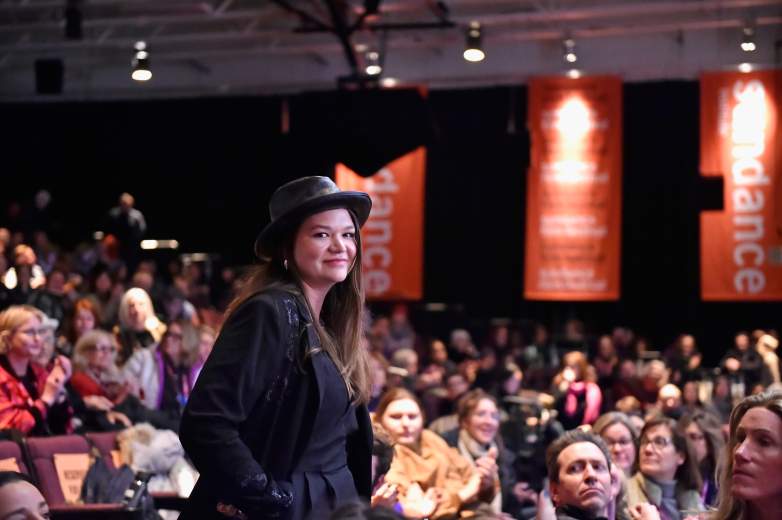
Brittany Kaiser attends the Netflix documentary “The Great Hack” Sundance Film Festival Premiere at The Marc Theatre on January 26, 2019 in Park City, Utah.
The Netflix documentary The Great Hack explores Cambridge Analytica’s collection of date from 90 million Facebook users. Sundance described the film as one that “uncovers the dark world of data exploitation through the compelling personal journeys of players on different sides of the explosive Cambridge Analytica/Facebook data breach that rocked the world.”
In a review of The Great Hack, The Verge said: “Kaiser’s story is by far the most interesting part…”
Indeed, as Verge notes, just who she is exactly and what she believes is open to inspiration: “…Kaiser comes off as a shrewd anti-hero whose true beliefs are nearly unreadable. She might be an embittered idealist who joined Cambridge Analytica after years of thankless and poorly paid progressive activism, only to recant after realizing she’d lost her way. Or she might be an opportunistic political operator who’s more interested in power than any particular ideology, refashioning herself as a whistleblower to evade the consequences of her actions.”
And Kaiser is its star protagonist even if the dramatic styling of the doc suggests, as Verve noted, that her motivations are not so transparent, the cooperation with ongoing federal investigations into Trump-Russia collusion, notwithstanding.
What is clear is that she’s now focused on data protection.
5. Kaiser’s ‘Own You Data’ Movement Blames Silicon Valley Tech Platforms
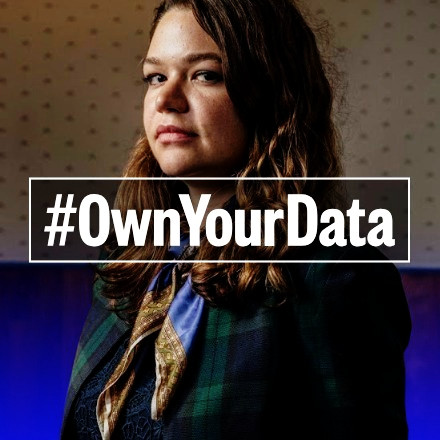
Brittany Kaiser
A year ago, she created a Change.org petition to demand that Facebook CEO Mark Zuckerberg give the platform’s users control over their data. With a 200,000 signature goal, it’s received close to 160,000.
Her campaign, as hashtagged across her LinkedIn profile picture, is driven to ensure people own their own information; she says it’s a human right.
“I know about this topic intimately because I used to work for Cambridge Analytica – the data company which works on elections and commercial advertising campaigns. Now I’m blowing the whistle on the whole industry. The problem starts with the Silicon Valley tech platforms, which track our every movement and make us easy to target,” she wrote.
When she was a student and campaign staffer, she met Facebook co-founder Chris Hughes who she says is in lock-step with her on the right of Facebook users to own their data.
“It’s time for us to own our own data. This is a human right. We should be able to decide freely how our data is used (and how it is not); stop anyone using it to try and manipulate us; take it with us if we leave the platform; And to get paid for the value our data generates.”
And as Kaiser told Parliament, “…governments, private companies, and wealthy individuals have long had the opportunity to buy, license and collect our datasets. The past decade has seen a rampant rise of this data collection and modeling, targeting individuals to sell products, services and political ideology. I know this all too well, as a data rights campaigner and former employee of Cambridge Analytica. Privacy has become a myth, and tracking people’s behavior has become an essential part of using social media and the internet itself; tools that were meant to free our minds and make us more connected, with faster access to information than ever before. Instead of connecting us, these tools have divided us. It’s time to expose their abuses so we can have an honest conversation about how we build a better way forward.”

